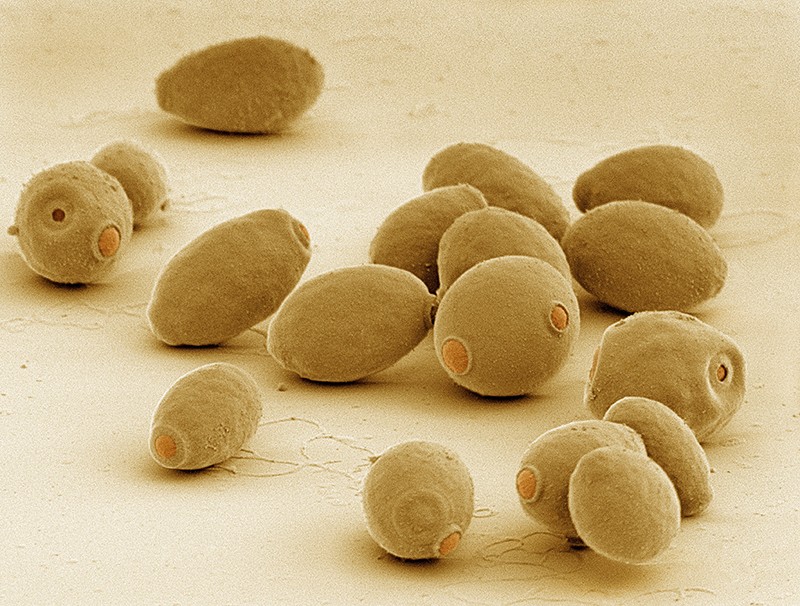Scientists brew cannabis using hacked beer yeast
Date: 1.3.2019
The yeast that people have used for millennia to brew alcoholic drinks has now been engineered to produce cannabinoids – chemicals with medicinal and sometimes mind-altering properties found in cannabis.
 The feat, described on 27 February in Nature, turns a sugar in brewer’s yeast (Saccharomyces cerevisiae) called galactose into tetrahydrocannabinol (THC), the main psychoactive compound in cannabis (Cannabis sativa). The altered yeast can also produce cannabidiol (CBD), another major cannabinoid that’s attracted attention lately for its potential therapeutic benefits, including its anti-anxiety and pain-relief effects.
The feat, described on 27 February in Nature, turns a sugar in brewer’s yeast (Saccharomyces cerevisiae) called galactose into tetrahydrocannabinol (THC), the main psychoactive compound in cannabis (Cannabis sativa). The altered yeast can also produce cannabidiol (CBD), another major cannabinoid that’s attracted attention lately for its potential therapeutic benefits, including its anti-anxiety and pain-relief effects.
The hope is that this fermentation process will enable manufacturers to produce THC, CBD and rare cannabinoids that are found in trace amounts in nature more cheaply, efficiently and reliably than conventional plant-based cultivation.
Previous work described constructing parts of the cannabinoid production line in yeast, but not the complete process. The latest study is the first that has “put it all together and shown that it actually works inside one cell, which is cool”, says Kevin Chen, chief executive of Hyasynth Bio in Montreal, Canada, one of at least ten companies working to produce cannabinoids in engineered yeast, bacteria or algae.
Researchers have produced anti-malaria drugs for commercial purposes, as well as opiates in the lab, using similar yeast-grown methods before. But the technology for making cannabinoids is nowhere near ready for market. David Kideckel, a cannabis analyst with AltaCorp Capital in Toronto, Canada, predicts that it will be another 18–24 months before synthetic cannabinoids are cost-effective enough to sell to either pharmaceutical companies or the general public.























